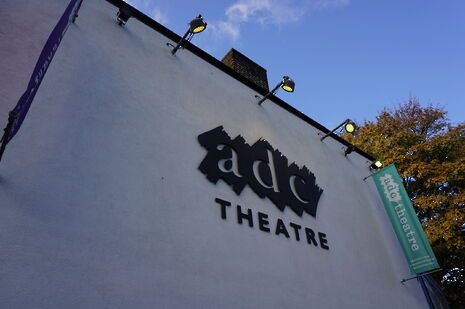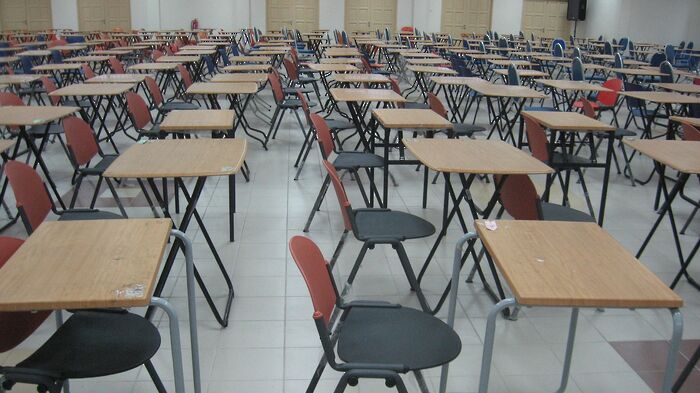Cambridge should offer degrees in the expressive arts
Our University could play a role in tackling the culture of subject elitism, not conforming to it, argues Bethan McGinley

In a recent letter published by The Guardian, artists including Tracey Emin, Rachel Whiteread, Phyllida Barlow and Anish Kapoor condemned the GCSE English Baccalaureate (Ebacc) as having a detrimental impact both on schools and wider society due to its failure to include the arts. In this use of the term, the ‘arts’ subjects referred to are the expressive arts, including music, drama and dance. Under Gove, the introduction of the Ebacc qualification made the study of the sciences, English language and literature, maths, a language and geography or history near-compulsory for GCSE students by tying these subjects to access to many universities. Such education policies have heavily reinforced subject elitism, something which also exists within the educational environment within Cambridge.
An early poll showed that 27% of schools cut subject courses as a direct result of the implementation of the Ebacc, and analysis from the Cultural Learning Alliance in 2013 revealed that within this the arts were disproportionately affected. Schools are already measured on the number of pupils taking GCSEs in the core subjects and by 2025 the government wants to see 90% of GCSE pupils choosing the Ebacc. Unless the arts are re-established as a key component of secondary and higher education, there is a risk that they become the preserve of the fortunate few.
The arts are worth an impressive £92 billion a year to the UK economy
These trends are part of the growing marketisation of education nationally. This means greater economic value is attached to vocational subjects, particularly STEM subjects (science, technology, engineering and maths), which are consequently given priority. By extension, this relegates arts subjects to the status of indulgences, non-essentials or luxuries. Yet, the arts drive one of Britain’s largest and most successful global industries, worth an impressive £92 billion a year to the UK economy, larger than oil, gas, life sciences, automotive and aeronautics combined. Moreover, the arts are essential to a thriving, colourful, multi-faceted society.
Outside of the formal policies that exhibit and sustain a subject elitism, the ideas that some subjects are more ‘worthy’ than others may also be being continued by universities which favour applicants with qualifications in ‘facilitating subjects’ (core subjects, which unsurprisingly do not include the arts). Such ideas may also be seen if we think about how our own University does not offer arts-based courses, with the exceptions of Music and Education with Drama (which under the recent course restructuring become Education with English, Drama and the Arts).
If the expressive arts are already being targeted and stigmatised, then surely the humanities are next in the firing line. Within Cambridge itself some would say a certain stigma still surrounds degrees such as Theology, History of Art and Philosophy, the misguided implication being that such subjects are somehow less work or less worthwhile than their STEM counterparts. If we allow subjects to be ranked on the basis of how economically profitable, or how ‘essential’ they are deemed to be, we reduce education to that of a profit-driven enterprise which succeeds only in meeting the ‘essential’ needs of our society.
If the study of the history of art is encouraged, why is the same encouragement not given to the production of art itself?
Surely education amounts to more than this? Surely our University amounts to more than this? Cambridge has the potential as one of the UK’s leading educational facilities to challenge the trend of devaluing the arts by including such courses in the curriculum, in addition to challenging the culture of derision that often still surrounds the humanities courses currently on offer.
Understandably, the University prides itself on providing rigorous, academically-challenging degrees and it is true that other specialist arts universities are currently better suited to offering degrees such as media or graphic design. However, the arts should not be precluded from the University on these grounds. A rigorous education and the arts do not have to stand in contradiction to one another. Already, Music is included in the courses on offer and Oxford recently introduced a Fine Art degree.
It would be wrong to suggest that Cambridge is a city that does not appreciate the arts. For example, the famous and thriving theatre scene has produced actors including Emma Thompson, Stephen Fry and Miriam Margolyes, to name but a few. Yet theatre is still predominantly confined to the extra-curricular sphere. If it is deemed legitimate for English Literature students to study plays, poetry and novels, all of which form an important part of the UK’s cultural life, why is it not legitimate for these to be performed and produced in a degree of its own right? Similarly, if the study of the history of art is encouraged, why is the same encouragement not given to the production of art itself?
What this all boils down to is a subject elitism that exists in wider education policy in the UK and that must be stopped. Cambridge ought to be equally representative of all the main subject areas (sciences, expressive arts, humanities, languages and mathematics) and should aim to cater to students of a variety of skills. Catering for a more inclusive variety of degrees would only enhance the University’s standing as one of the best educational institutions in the world.
By providing expressive arts degrees, the University would be contributing to society as a whole, in addition to encouraging diversity within the University’s student life itself. To espouse an education system which denigrates all but those subjects deemed ‘valuable’ (read: profitable) or ‘essential’ to the functioning of society is to envision a deficient, culturally-stunted, one-dimensional country. Cambridge has an opportunity and responsibility to combat this trend, not conform to it.
 News / Reform candidate retracts claim of being Cambridge alum 26 January 2026
News / Reform candidate retracts claim of being Cambridge alum 26 January 2026 Interviews / Lord Leggatt on becoming a Supreme Court Justice21 January 2026
Interviews / Lord Leggatt on becoming a Supreme Court Justice21 January 2026 News / Report suggests Cambridge the hardest place to get a first in the country23 January 2026
News / Report suggests Cambridge the hardest place to get a first in the country23 January 2026 Comment / How Cambridge Made Me Lose My Faith26 January 2026
Comment / How Cambridge Made Me Lose My Faith26 January 2026 Features / Are you more yourself at Cambridge or away from it? 27 January 2026
Features / Are you more yourself at Cambridge or away from it? 27 January 2026









